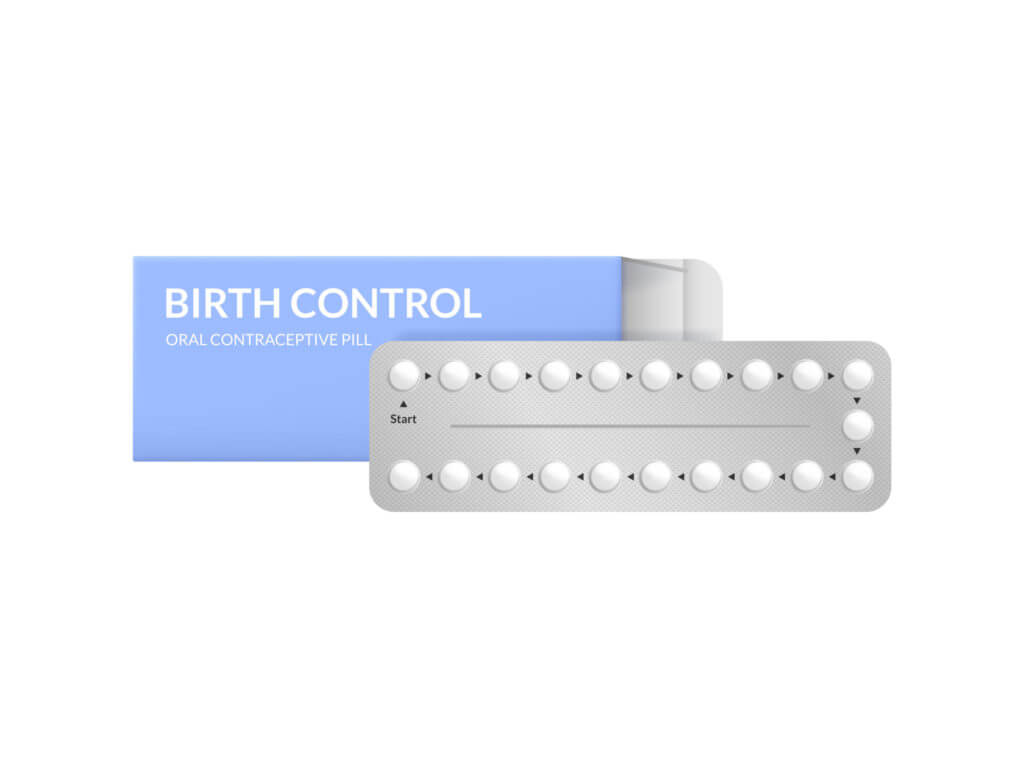
- April 1, 2021
- 0 Comments
The Best Birth Control Pill for You
Many women chose birth control pills as their preferred method of preventing pregnancy because simply put, they work. They are easily accessible, are safe, have limited side effects, and actually have some health benefits. The Canadian Women’s Health Network claims that birth control pills are 99.7% effective when used correctly.
Are you wondering which birth control pill is the best for you?
There are an abundance of options to choose from. Even if you narrow it down, it may still feel like a leap of faith when making your choice. If you do a little research and are willing to do a little trial and error you will likely end up the birth control pill that works best for you.
Understanding the Two Types of Birth Control pills
Simply put, there are birth control pills with estrogen and those without. The most common are combination birth control pills which contain both estrogen and progestin.
Combination Pills
Combination pills are very effective in preventing pregnancy by overriding your typical menstrual cycle so there is no surge in hormones. The estrogen in the combination pills overrides the bodies’ natural hormonal message to release of the egg. The progestin plays back up to estrogen and does two jobs – it thickens your cervical mucus making it more difficult for the sperm to travel to an egg. It also thins the uterine lining impeding any egg that does get fertilized to implant.
There are generally considered to be three types of combination pills — monophasic pills, multiphasic pills, and extended cycle pills.
Conventional Combination Pills
Both monophasic and multiphasic birth control pills are conventional. In a typical cycle, some of these pills have active ingredient and some don’t. Monophasic pills give you the same dose of hormones in every pill. Multiphasic have differing levels of hormones in the active pills. In both monophasic and multiphasic, these combination pills typically these follow a natural cycle with 21 days of active pills and 7 days of inactive. Some birth control brands offer an alternative choice of 24 active pills and 4 inactive pills. Both choices mimic the usual women’s 28 day cycle, the second choice, allowing for a shorter period.
Essentially the difference is how often you want to have a period. During the inactive period, you will get your period.
Extended Cycle Combination Pills
These extended cycle combination pills alter the normal course of a women’s cycle to either four periods a year, or eliminating the period completely. The more common choice is 84 active pills and 7 inactive pills.
The benefits of combination pills are:
- can reduce PMS symptoms

- can reduce cramping
- periods are predictable
- periods are lighter and shorter
- less acne
- chance of period related anemia is reduced
- slightly more effective than estrogen only pills
The downside can be:
- don’t protect against sexually transmitted disease
- weight gain
- bloating
- nausea
- depression
- and other health risks
For more information about combination pills please talk to your health care provider or refer to you preferred birth controls pill’s monograph from the manufacturer.
Mini Pills (also known as progestin-only pills)
Mini pills are estrogen free and work with only progestin. The progestin plays the same roll as it does with combination pills. The mini pills deliver a steady dose of progestin which thickens the cervical mucus and also thins the uterine lining.
Gone are the placebo’s (inactive pills) contained in the package. Mini pills only contain progestin. You can take 21 pills and then take a 7 day break to have a period, or you can continue into the next package.
The benefits of mini pills are:
- more effective than condoms
- fewer side effects than combination pills
- can reduce heavy periods
- can use while breastfeeding
The downside of mini pills are:
- don’t protect against sexually transmitted disease
- may cause irregular periods
- may cause spotting
- can cause mood swings
- must take at the same time every day
For more information about mini pills please talk to your health care provider or refer to you preferred birth controls pill’s monograph from the manufacturer.
No matter your choice of combination or mini pill you must be compliant with the directions. The most common birth control pill taking misstep involves forgetting to take the pill or taking it late — this is referred to as “typical use”, so it is not uncommon. This reduces the 99.7% effectiveness, or more clearly stated — within the first year 9 out of every 100 women using birth control pills may become pregnant during their first year of use. Typical use and other factors can cause up to a 9% pregnancy rate.
Medicine News Today wrote a great article detailing the 5 reasons why birth controls pills may not work which are
- Missing a pill or pills
- Vomiting
- Not taking the pill at the same time each day
- Not starting a new pack on time
- Taking other medications that may interfere with the birth control pills’ effectiveness
Conclusion
The best birth control pill for you is the one that causes the least side effects, gives you the cycle you prefer, and protects you from pregnancy most effectively when having sex. Remember that birth control pills are over 99% effective if taken correctly.
Sign up to SprintScripts to consult with a pharmacist, receive free birth control pill delivery to your home, and if you like you can “opt in” to our daily text messages to remind you to take your pill.





